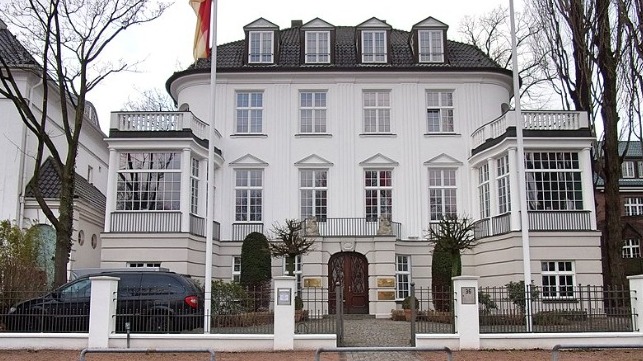German Police Raid Multiple Shipowners in S. Asia Scrapping Sting

Prosecutors in Hamburg have raided the offices of shipowner Erck Rickmers Group and several other firms in a search for evidence of allegedly unlawful demolition sales, according to German news outlet NDR.
The case centers on the disposal of the vessels Florida I, Alexandra Rickmers and ER Hamburg, prosecutors told NDR. Erck Rickmers and other firms involved in the case allegedly sold these vessels to an intermediary with prior knowledge that the ships would be sold onwards to scrappers in Pakistan, "where they drove onto an unsecured beach and were scrapped there under environmentally hazardous circumstances," prosecutors said.
Florida 1 (ex name MSC Florida) was renamed and re-registered with a Paris MOU black list flag in October 2017, according to her Equasis record. Her last AIS position was broadcast the same month at a shipbreaking beach at Gadani, Pakistan. The Alexandra Rickmers and the ER Hamburg arrived at the same location in September 2017, according to historical AIS data.
Police officers raided seven buildings in Hamburg on Wednesday in connection with the probe, hunting for electronic and written evidence. One of the locations was a villa belonging to the Erck Rickmers Group, Bild.de reported.
Erck Rickmers' shipowning firm, ER Capital, said in a statement that it has no knowledge of any violations and is cooperating with investigators. One ER Capital vessel belonging to about 350 investors is involved in the case, the company said, and the firm's equity stake in the ship amounted to about one percent. The vessel was sold to the highest bidder in Port Said, and after the sale, "the further operation of the ship . . . was solely the responsibility of the buying company," the firm said.
The EU has stringent regulations on ship recycling for EU-flagged vessels: since the start of 2019, these ships must be scrapped at an EU-approved facility. No facilities in South Asia have been approved to date.
In recent cases in the Netherlands and Norway, prosecutors have also used general-purpose toxic waste laws - which were enacted long before the EU Ship Reycling Regulation took effect - to bring criminal charges related to demolition sales. In a precedent-setting 2018 case, the Rotterdam District Court found two shipping executives guilty of criminal violations of the EU Waste Shipment Regulation for the sale and export of four reefer ships. The court banned both of them from further work in the shipping industry.

that matters most
Get the latest maritime news delivered to your inbox daily.
For demolition sales to South Asia, shipowners typically sell defunct vessels to intermediary "cash buyers," who then resell the ships to independent scrapyards in Pakistan, Bangladesh and India. Due to a variety of regulatory and socioeconomic factors in South Asia, these yards typically pay twice as much or more per ton than yards in the developed world, enabling the cash buyer to receive (and pay) substantially more for each vessel.
South Asia leads the world for scrapped tonnage by a wide margin. According to NGO Shipbreaking Platform, about 76 percent of all vessels scrapped in the second quarter of 2021 went to South Asia, in line with long-running trends.
